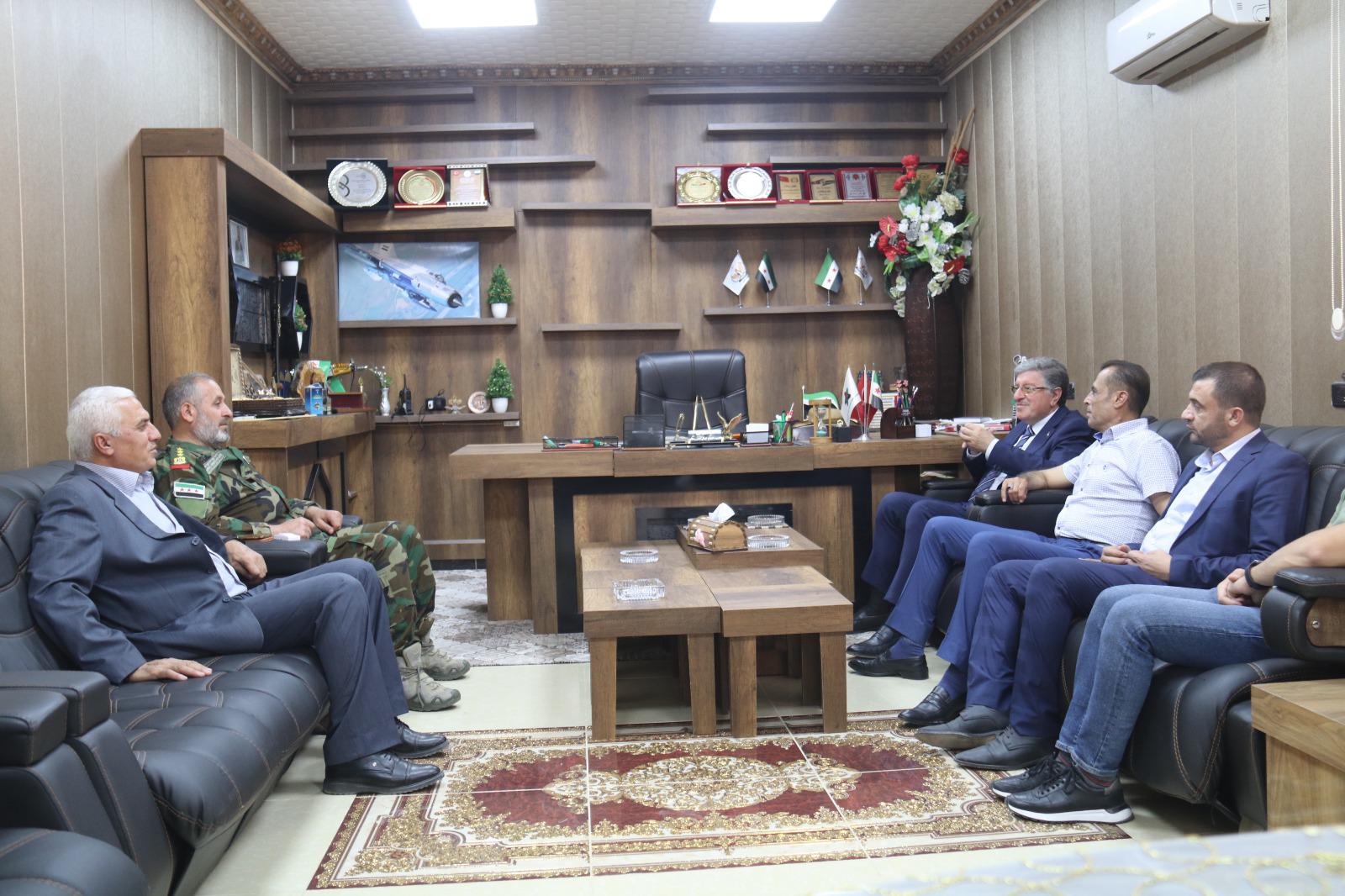President of the Syrian National Coalition (SNC) Salem Al-Meslet visited the headquarters of the First and Second Corps in Northern Syria.
Meslet met in the town of Hawar Kilis with the First Corps Commander, Brigadier General Moataz Raslan.
Al-Meslet was accompanied by SNC’s members Youssef Abbas, Asaad Allito and Atef Zureik.
The two sides discussed the difficulties and challenges impeding the development of the Syrian National Army, and the latest field and political developments in the country.
The two sides also discussed the living conditions in the liberated areas, and the importance of stepping up efforts to ensure security and stability in these areas and preventing the enemies of the revolution from destabilizing them.
Al-Meslet gave an overview on the results of the recent visit of a delegation from the SNC and the Syrian Negotiations Committee to the United States where they met with foreign missions to the United Nations and the US administration.
Al-Meslet reaffirmed the SNC’s commitment to the goals of the Syrian revolution and the demands of the Syrian people to achieve freedom, dignity, and democracy by reaching a political transition in accordance with UN resolutions, especially the Geneva Communique of 2012 and UN Resolutions 2118 and 2254.
Al-Meslet also visited the headquarters of the Second Corps in the town of Hawar Kilis in rural Aleppo and met its commander, Brigadier General Ahmed Othman, as well as its military leaders.
The meeting focused on discussing the important role of the Syrian National Army in ensuring security and stability in the region, in addition to the need to unify military efforts and overcome the difficulties and challenges impeding the development of the Syrian National Army.
The two sides also discussed the conditions in the liberated areas, the need to improve these conditions, and improve basic services provided to the population.
This article was translated and edited by The Syrian Observer. The Syrian Observer has not verified the content of this story. Responsibility for the information and views set out in this article lies entirely with the author.


